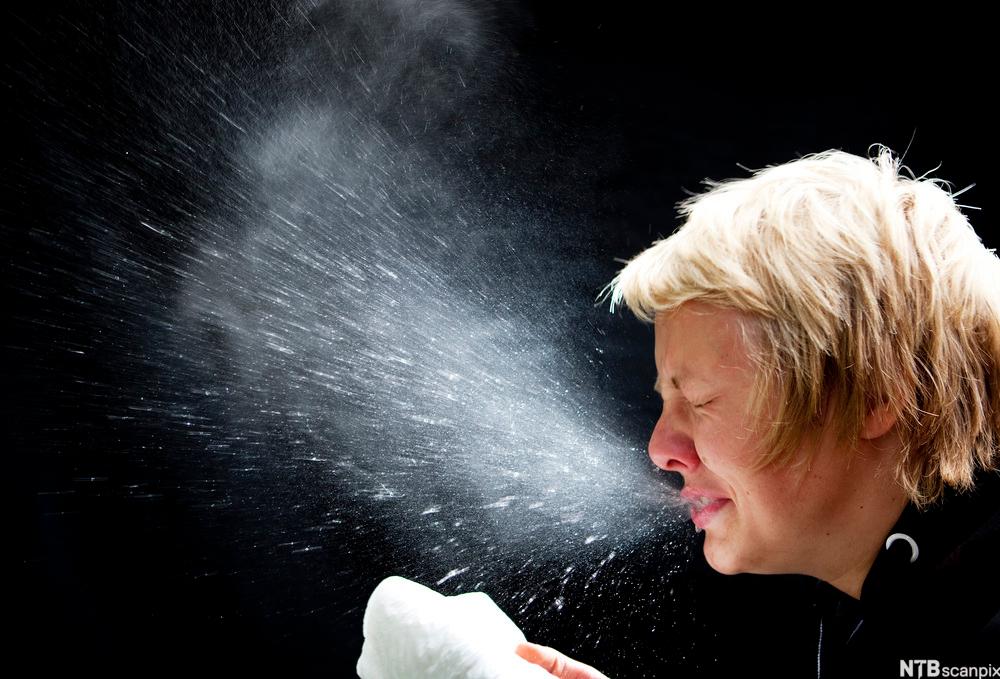Our Amazing Defence System

Defence system
Our body's fine machinery will to a large extent take care of itself. In a miraculous way the body creates a defence against the millions of germs and viruses that attack us every day. Some of them are even deadly, yet they are neutralized and destroyed by the body's defence system, - and we stay healthy without even knowing that we have been attacked.
Germs are everywhere, and get in through the mouth, the nose, the eyes, and through cuts and sores in the skin, but the body has a defence system ready to deal with any unwelcome intruder. The saliva in the mouth and the tears contain a strong germicidal antiseptic called Lysozyme, and the digestive juices in the stomach also contain powerful antiseptic chemicals. Even the skin puts up a resistance and will kill the germs that may gather on its surface.
A runny nose may well be unpleasant, but it just proves that the defence system is doing its job. Watery eyes, a sneeze or a cough are all examples of how the body tries to get rid of attacking germs and bacteria.
However, the amazing story of staying well does not stop there. The body has a built-in system that can identify and label germs and viruses. The body then mobilizes antibodies for a counter attack that will kill the invading germs. Once the body has been attacked by a virus, it will store the information and create an antibody that later will recognize the same virus and kill it. It is basically what we do when we get a vaccine. The shot contains a microscopic amount of the virus, not enough for you to get sick, but enough for the system to learn its pattern and create antibodies to resist a second attack.
Some germs are clever enough to evade the defence system of antibodies because they can change their pattern. For example, the flu virus is hard to defeat, since it comes in different shapes and patterns, and each one will need a separate antibody. So there is a chance that you will catch the flu even if you are vaccinated.
Even though the body has an effective and self-sustaining defence system, we can contribute and make things easier for the body to defend itself. Vaccination is a way of teaching the body how to resist a certain virus, but there are other ways of helping the system. Most bacteria and germs are transported via the hands, so good hand hygiene is essential if we want to help. It also goes without saying that it is not smart to expose the body to dangerous environments. Inhaling fumes and particles will be a hard challenge for the defence system and so will careless contact with infected or contagious surroundings. If we take these measures, we will contribute to the body's self-defence, but in general the body has an amazing ability to look after itself without our interference.
Tasks and Activities
Comprehension
1 What is Lysozyme?
2 Why do we sneeze?
3 How does the body respond to a vaccine?
4 What is an antibody?
5 Why is a flu virus difficult to defeat?
6 How can we help the body defend itself?
Translate
Bokmål
Kroppen vår forsvarer seg mot angrep fra virus. I spyttet i munnen og i tårene fins bakteriedrepende kjemikalier. Magesaften inneholder også sterke antiseptiske stoffer. Kroppen har også et innebygget forsvarssystem som danner motstoffer mot de fleste virus. God håndhygiene er viktig for å hjelpe kroppen til å forsvare seg.
Nynorsk
Kroppen vår forsvarar seg mot angrep frå virus. I spyttet i munnen og i tårene finst bakteriedrepande kjemikaliar. Magesafta inneheld også sterke antiseptiske stoff. Kroppen har også eit innebygd forsvarssystem som dannar motstoff mot dei fleste virus. God handhygiene er viktig for å hjelpe kroppen til å forsvare seg.